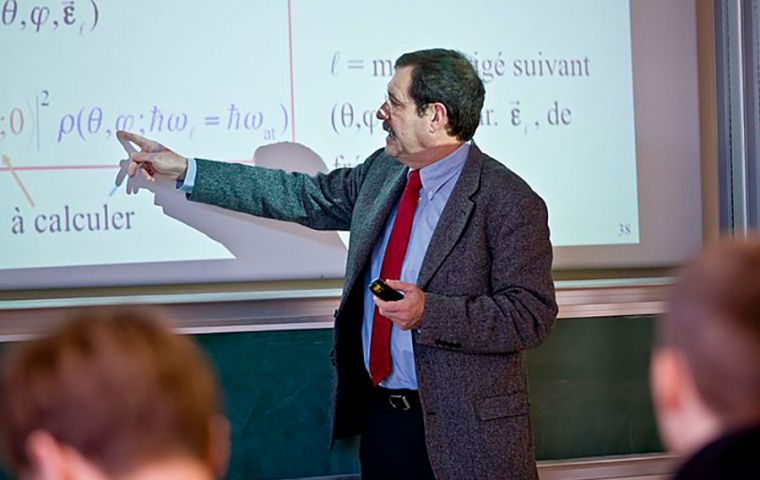MercoPress. South Atlantic News Agency
Nobel Physics Prize goes to 3 quantum mechanics researchers

Quantum mechanics researchers from France, Austria, and the United States were awarded the 2022 Nobel Prize in Physics “for experiments with entangled photons, establishing the violation of Bell's inequalities and pioneering quantum information science,” it was announced in Stockholm by Sweden's Royal Academy of Sciences.
The jury found France's Alain Aspect, Austria's Anton Zeilinger, and John F. Clauser of the United States to be pioneers in their field for their experiments with quantum entangled states, in which two particles behave as a single unit even when separated. The results paved the way for a new technology based on quantum information.
“We can see that the laureates' work with entangled states is of great importance, even beyond the fundamental questions about the interpretation of quantum mechanics,” said Anders Irbäck, Chairman of the Nobel Committee for Physics.
The three prize-winning scientists worked on the so-called quantum entanglement, a state in which the fate of two particles is associated with each other and which intrigued Albert Einstein himself. Aspect, Clauser, and Zeilinger contributed with their research and experiments to solve the so-called Bell's Inequality.
Physicists wondered whether entangled particles owed their behavior to “hidden variables” that linked them. In the 1960s, John Stewart Bell postulated that, if these hidden variables existed, the correlation between the particles could not reach a certain limit. But that limit was eventually reached, thus demonstrating that the phenomenon of quantum entanglement went beyond the existence of hidden variables.
The three scientists split the 10 million Swedish kronor (US$ 882,000) prize equally, since their research has contributed in equal measure to perfecting experiments that have been instrumental in transforming quantum physics from an abstract discipline into a concrete tool for applications in the field of information, computation, and communications, it was explained.




Top Comments
Disclaimer & comment rulesCommenting for this story is now closed.
If you have a Facebook account, become a fan and comment on our Facebook Page!